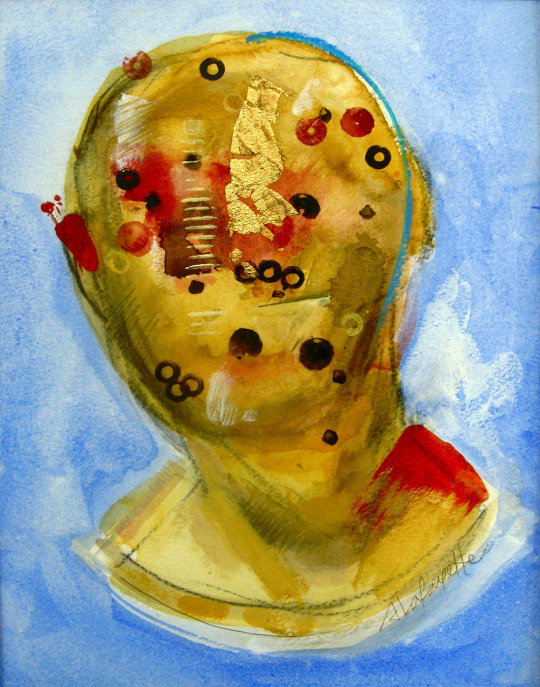#anfony
Text
you are in the earth of me [01]
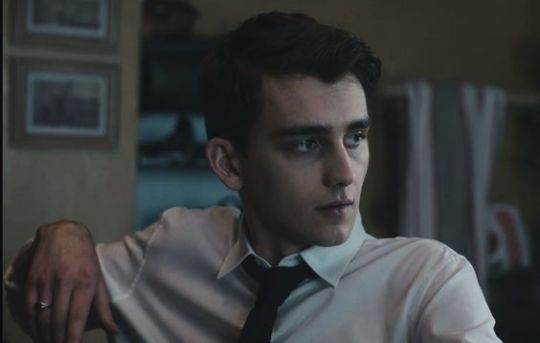
Pairing: Anthony Lockwood x fem!Reader
Content: cot3 +1 (and kipps), canon-typical violence & horror, loss of family member (not just Lockwood), found family, touch starved Lockwood, childhood friends Kipps & Reader, childhood trauma, slow burn, rivals to lovers (if this stays a Lockwood/Reader), mature language (swearing), aged up characters (everybody's in their early 20s; Kipps is mid-20s), fem! Reader though pronouns are used sparingly and no use of y/n
Summary: “Ton—Anfonie ‘Ockwoo’.” You nod, and finally swallow your mouthful of food. “I’ve heard things about you.”
Lockwood’s dark eyes slide over to Kipps for a second, glinting like a knife drawn out of its sheath. He gives you a nice, easy smile. “Only good things, I presume?”
You feel your face scrunch up at the memory of Kipps’s curses, threats and very imaginative ways of what he’d do with his rapier and a very specific part of Lockwood’s body. “Yeah, uhm … things.”
Notes: [02]
Words: 5.1k
A/N: Words will never suffice how much Lockwood & Co. has carried me through some of the toughest parts of my life. To see it adapted to a show is SO EXCITING, I couldn't help but be a little self-indulgent and plan out a whole ass story for my favourite three (+ Kipps) ghost hunters. So here we go.
This could either stay a Lockwood/fem!Reader or I could easily change it into Locklyle or even freaking poly cot3 x Reader or just Locklyle depending on what people want to read. I'm fine with pretty much everything; I just want my silly little Reader joining 35 Portland Row because I am in DIRE NEED OF FOUND FAMILY AND JUST SELF-INDULGENT GHOST HUNTING
So yeah, I'm totally open to people requesting Locklyle or anything for this one, but it's still gonna be from Reader's POV and focusing on an original story with action and characters studies and personal growth. Also sorry for any mistakes, English isn't my first language and I'd be super happy if someone offered to become my beta-reader for this! Any feedback is super super appreciated!!

01: let the dead hollers hum
when i first saw you,
the end was soon
to bethlehem it slouched
and then it must've caught a good look at you
—hozier: nfwmb
At almost two in the morning the streets should be empty of people and cars, yet you manage to nearly get hit by a night cab turning down Tredegar Road. Its ghastly horn echoes like the wail of a Banshee through the dark, disturbing the peaceful night. Across the street, a kitchen light flickers to life inside a building. A shadow moves behind the white curtains, pausing for a second to look out at the street.
Bracing against the cutting wind, you turn up your maroon trenchcoat’s collar and duck your head like a turtle trying to hide inside its shell. It would have been much colder without your gloves now that the early winter bite is coming, but it’s still very unpleasant to be outside after the sun has set. Today is a clearer night, despite the day of rain; the moon chases stray wisps of cloud across an otherwise unmarked black sky.
London turns in earlier than usual now that the nights grow longer and colder—and more dangerous as well. Just yesterday you heard two more night-watch kids have succumbed to ghost-lock down at the warehouses near Blackfriars when they got distracted trying to warm up from the freezing evening rain that had set in after eleven. They turned into easy pickings for a Drowner lurking beneath the docs—former scoundrels who ended their sorry lives in the water by drowning. They rarely make a pleasant sight with their bloated limbs and skin wrinkled so hard it is peeling off like layers of paint.
It makes you glad to feel the familiar weight of your rapier hanging from your hip holster, to know that just within short reach, everything you need to protect yourself is at your disposal. That and the salt bombs around your belt. It’s hard not to feel safe while carrying around something with ‘bomb’ in its name.
You find the meeting point you’ve been summoned to at the end of the street. The Green Goose is a two-floor building with the restaurant at the bottom and what you can only assume the storage and other facilities upstairs. All sun-blinds on the first floor are drawn shut.
Few London establishments are open during the night, and fewest of all in the dark hours before the dawn. But places like this, catering for agents or night-watch kids, are easily recognised by the additional fortification against possibly unwanted visitors. High up where the first floor meets the second, heavy mistletoe bushes run around the whole building like a gigantic garland. You imagine in summer this would be lavender blooms, plunging the whole street into their thick, sweet scent. The door and windows are laced with iron grilles, and overhung with battered ghost-lamps. A few wooden dining tables and benches remain vacated outside, left to their own until the warmth of spring returns.
After a first glance inside the premise through the grimy windows, you don’t spot your friend. How much easier this would be if you could carry a phone around, just to check if you are at the right place. Now all you have to go on is his cryptic call before your shift started this morning, and a vague sense of the kind of establishments he likes based to his tastes.
Good thing you have known him for almost a decade.
But that doesn’t really give you an idea what exactly Quill Kipps wants from you. Maybe help with a case? Or he has finally realised he has a crush on his co-worker, that lemony-smelling Kat or Kate, and now he needs advice. Not hanging out at the dead of the night would be a preferable start.
Small bells jingle when you push the door open with your shoulder, and a waft of warm air scented with grease and coffee hits your nose, bringing heat back to your face. It looks a lot smaller than from the outside, narrow and with the sitting area stretched in an L-shape around the bar and counter in the middle. Behind that a pair of slightly askew doors lead to the kitchen where you can hear a radio play.
The first row of tables line alongside the window, then disappear further into the back. In the corner, two night-watch kids sit huddled together, quietly snoring and drooling on each other’s shoulders with their meagre food spread before them. A waitress with short black hair and a chubby chin standing behind the counter looks up from a magazine, stares at you, and blows out a baby-blue bubble of gum until it pops loudly.
She raises an eyebrow.
You raise one back at her.
From the other side of the entrance, you hear Kipps calling your name. At that, the waitress gives you a single, polite nod which you answer alike, as though you are two cowboys engaged in a stand-off who don’t want to shoot each other.
Marching down the narrow aisle, you pass an occupied table and accidentally bump into it. Cutlery rattles against an empty plate. You mumble a half-hearted apology and move on, barely listening to the grumbled answer or really looking at the man clad in black sitting there. He gives of a sweet, heavy scent you can’t really place, and quickly move on.
Knowing you’d arrive in a foul mood, Kipps has already ordered your favourite midnight snack after a hard day’s work: coffee and a simple English breakfast with a fried egg, hot and greasy sausages, crispy bacon, tomatoes and mushrooms on the side.
“It better be important, Kippy,” you say in lieu of hello, manoeuvring over his lap to the unoccupied seat by the window, using elbows and knees to execute a complicated dance with him so you can squeeze into the narrow booth. He grunts and makes barely any effort to make you room. His outstretched legs take up a disproportionate amount of real estate. “I got a ten hour shift behind me and I’m desperate for my bed.”
“You certainly smell like after a ten hour shift,” he comments, wrinkling his nose. Of course he looks well kempt and neat as always with not a single ginger curl on his head out of order. But there are dark circles under his eyes as though someone put a charcoal pen to his skin, betraying his tidy appearance. His eyes flit over your face for a second, scanning it for any injuries.
You give him your best shit-eating grin and wolf down on your eggs when someone clears his throat from across the table—and that’s when you realise Kipps isn’t alone.
Nursing a cup of tea, opposite you sits a young man in a black suit, slender and tall, his short, unruly hair swept back elegantly. He watches you with mild interest, his thin lips slightly pursed, like someone would watch a flock of hungry pigeons plunge towards bread crumbs spread by tourists at Hyde Park—nothing out of order. Just another regular sight in the big city on a late afternoon stroll.
You hold his steady, dark eyes when you bite into your egg, feeling the yolk escape at the corners of your mouth and run down your chin. You didn’t even realise how much you were starving.
“Hwo’sh yor fren’, ‘Ippy?” you ask with your mouth full because you have absolutely zero shame.
Kipps swallows a groan.
“Yes, Kippy,” the young man replies with the most soothing, alluring voice you have ever heard, as though he’s eaten silk and honey for breakfast. “Why don’t you introduce us?”
Kipps makes a disapproving noise in the back of his throat. Annoyance radiates off him stronger than any other-light you have seen on apparitions. “Friend is a bit much,” he says slowly, as though he has to talk around the word ‘friend’ because it leaves a bitter taste in his mouth. “That’s Lockwood.” You recognise his tone. It sounds a lot as if he’s saying That’s the biggest nuisance of my life.
The effect is pretty much the same.
You nearly choke on your next bite and aim for the coffee to wash it down. When you jerk your head around to stare at Kipps in disbelief, your eyes stretch wider than the dinner plate before you. Kipps must read what’s written on your face: That’s Lockwood? Tony Lockwood you can’t shut up about? Your arch-nemesis?
Kipps rolls his eyes so hard it must give him a spectacular view of his skull. Just humour me, his expression says.
“Ton—Anfonie ‘Ockwoo’.” You nod, and finally swallow your mouthful of food. “I’ve heard things about you.”
Lockwood’s dark eyes slide over to Kipps for a second, glinting like a knife drawn out of its sheath. He gives you a nice, easy smile. “Only good things, I presume?”
You feel your face scrunch up at the memory of Kipps’s curses, threats and very imaginative ways of what he’d do with his rapier and a very specific part of Lockwood’s body. “Yeah, uhm … things.”
Lockwood seems to understand, for he doesn’t inquire further, but his smile seems to freeze a little at the corners. “And you are?”
“Kipps’s friend.” You stuff the rest of your toast into your mouth and give your name. Lockwood blinks and keeps a polite smile, and doesn’t ask even though you’re sure he didn’t understand a word you just said.
“I wasn’t aware Kipps has friends.” Lockwood’s eyes have taken on a taunting glint, and he leans forward as he speaks. “Certainly not friends at Rotwell.”
His eyes drop to the crest stitched onto the upper part of your sleeve on your trench-coat: a snarling lion holding a rapier in its front paw—the agency’s symbol—before he gives Kipps a pointed look as though that small detail would have been worth mentioning before they got up to whatever this is.
Kipps ignores him. “I called you because I need your help,” he says, sliding napkins over to you which you promptly ignore. “I need your Talent.”
You halt at that and give him a long, level look. Kipps doesn’t shy away from the weight of your gaze, and suddenly you become painfully aware of the tension surrounding them, thick enough you could cut it with your dull knife.
Slowly, you chew your sausage. “What exactly are we talking about?” you ask, voice quieter, matching Kipps’s. He’s doing that little wiggle in his seat, shifting his weight from left to right he always does when bracing for potential conflict. When he trails his eyes away from you, you follow them to Lockwood who is looking at Kipps as though seeing him for the first time.
From the pockets of his long, black coat, Lockwood pulls out a small wooden box. It would easily fit into the palm of your hand, and from where you sit you can’t see a particular design or anything on the surface. Lockwood slides the box across the table towards you, flips it over with his long, slender fingers, and opens the lid, revealing a small bronze key lying on a cushion surrounded by thin iron plates.
You stare at it for five, six seconds. Then reach out to take another big swig of your coffee. With no sugar, acidly bitter taste explodes on your tongue, just the way you like it.
“It’s a Source,” you say. “You just carry a Source around like that?”
“Exceptional observation skills,” Lockwood says with the mild tone of someone barely holding back his impatience. “I can see why you asked her to join us, Kippy.”
“I can see why Kipps wants to shove his rapier up your—”
“Trust me, I’d be the last one missing out on a chance to ridicule Lockwood,” Kipps interrupts, tapping a finger on the table in front of the box, “but Barnes wants results by tomorrow and I’d like to act like professionals for once, so can we please focus?”
Lockwood and you throw a mirror glare at Kipps that’s something along the lines of You’re one to talk. When you notice each other’s similar expressions, Lockwood quickly schools his features back to a neutral one. “It is secure inside its seal for now, but the Visitor contained in it is not particularly strong. If we’re quick, it won’t have time to come through,” he says.
You shake your head. “You’re mad. And you—” you knock your knee against Kipps’s—“what’s wrong with you for going along with this?”
“There’s just … not enough time,” Kipps says. Exhaustion seeps into his voice, strong enough to peel back layers of caution for he shares a quick glance with Lockwood and what they don’t say screams so loudly that you have to lean back and re-evaluate what you’ve known about their relationship up until now.
It seems that Kipps has missed out on filling you in on some crucial details about the past few weeks he has worked at Kensal Green Cemetery.
“Then why don’t you just tell me what this is about?” you say, looking over at Kipps sharply. “Why does Barnes need you both to work on it? Is it a Fittes job? Did Bobby get his greasy little hands on something and—”
“Actually,” Lockwood chimes in, “it is our case. Lockwood & Co. Kipps is … an associate. And we’re very short on time to solve this case. Let’s just say Kipps has a little favour to repay. We need someone who excels at Touch, and he said you are the best at it. You might be our last chance to find out more about this key.” He has switched from that arrogant drawl to a soft, melodic cadence with that maddeningly smooth voice of his. It has to be intentional—he is trying to play you like a fiddle with that charm he switched on like an industrial bulb.
“What’s there to solve? You got the Source, you sealed it. That’s all there is. This should be on its way to a furnace right now.” You fall back into your seat, eyes raking over Lockwood’s form. He doesn’t even wear a uniform for Christ’s sake. “And you call yourself an agent?”
And just like that the light goes out, the switch flicks off. Lockwood’s face is calm; the only sign of his agitation is a pulse hammering in his throat and a muscle twitching in his jaw.
Kipps shifts in his seat. “We can’t give it to Barnes yet,” he says in a quiet voice, wrenching your eyes away from the glaring contest you have engaged in with Lockwood. Kipps presses his lips into a thin line, and you can see the mental strain it takes on him to agree with something Lockwood said. His handsome face crumples as though he has bitten into a lemon. “We believe the murder of that Visitor is still out there.”
You digest that. Go in for some more food. It takes a lot more effort to swallow your bacon. “Even more reason to just leave it to Inspector Barnes and DEPRAC. Exactly why is this your responsibility?”
“Justice for the dead?” Kipps offers.
“Protecting the living?” Lockwood states nobly.
It sounds like a load of crap, but you are too sleep-deprived to bother figuring out what truly is at stake for them. Maybe another stupid bet, or whatever favour Kipps owes Lockwood from the last.
You run a hand through your hair, bobbing your leg up and down in a frantic rhythm. It isn’t your favourite thing to do, but you have always had a hard time telling Kipps no—and God knows he has done so much for you.
“You owe me,” you tell him. Kipps nods, and visibly relaxes with relief.
“Do you need me to—” he starts, sliding his hand across the seat and offering it to you. From across the table, you hear the seat’s leather creak as Lockwood leans forward to get a better look at what you are doing. It reminds you of a hound scenting blood in the air and going out on the hunt for its prey.
“No, I’m good. I’m not taking my gloves off anyway.” You don’t like using your Talent without anything to ground you, but there is something about the way Lockwood is looking at you two, hungry almost, as though he is categorizing a particular fascinating information to dissect it later and see what use he can draw from it. Best to just ignore him. Besides, without your gloves, you feel naked, vulnerable. This isn’t something for prying eyes—and Lockwood has an awfully piercing, scrutinising pair of unfathomably dark eyes you are not interested at all to get lost in.
You lean back into the seat and get comfortable first. It never works when you go in too tense because it takes more effort to peel away the wards of your consciousness. When Kipps takes the key and plays it into your open palm, you focus on its weight first—akin to a bird bone, you barely feel it through the thick fabric of your glove.
Which doesn’t mean it isn’t heavy. The energy radiating off this thing is like a physical force pushing you back into the backrest of your seat. You close your eyes and focus on the low thrum of energy—feelings and impressions wash over you in torrents, layer after layer. Your chest feels heavy. Your stomach clenches in a hard, tight knot—fear. Fear grips you in a tight, cold grip.
Something is lurking, far far back, something unfathomably dark and abysmal but you can’t get a hold od if through your gloves and as you begin to sift through the chaotic blur of emotions to find the source—so much darkness, so much death; good Lord the things people did to get their hands on—
Excitement. A lingering echo burning so bright it blinds; hope swelling after long periods of dread, like the first spring buds blooming after a cruel, cold winter. Agitation. The adrenaline-inducing last sprint towards your goal knowing there is nothing that stops you from reaching it. The smell of damp soil and coppery hijacks your senses, and then—
Pain explodes in your chest, knocking you back against a cushioned surface. Your knees slam against something hard, sending hot shots of pain up your legs. Your eyes snap open but the world spins when all the oxygen is sucked out of your lungs and warmth spreads over your chest, liquid seeps through your fingers—but how? He could not. He would never—someone is screaming, a piercing, blood-churning scream. It takes a moment to realise the scream belongs to you; the wailing is drawn out from your raw throat, but how could anybody blame you; you are dying, shot in the chest by—
Someone is calling your name. Strong hands grab your shoulders and shake you hard as though trying to tear you away from a dream, a nightmare.
“Oh God, help me. He—he shot me—please help.” You gasp, trying to stop the bleeding by pressing your trembling hands against the wound.
“You’re fine. Listen to me, you’re fine. Nobody shot you!” A familiar voice—Kipps’s voice pierces through the wailing terror inside your head. You stare up at his green eyes which are paler than usual, widened in worry. “It’s just a psychic echo. You’re safe here.”
Another forceful inhale expands your lungs. The hot pinpoint pain in your chest subsides slowly with every shaking exhale, and when you look down at your hands, there is no blood sticking to your fingers, only coffee. When you hit your knees against the table, you knocked over your cup. Now the liquid is spreading across the table in a big puddle and dripping down its edges.
Lockwood is busy wiping the table clean with the leftover napkins while wildly gesturing with his free hand to the waitress looming over your table. “Just a long night, nothing serious,” you hear him say in haste. Either she isn’t interested or doesn’t get paid enough to deal with this; she shrugs and drags herself back behind the counter. You look around the establishment, ready to apologise for your outburst, but everybody has left already.
You turn around. When your eyes meet Lockwood’s, he grins, his smile so sudden and jarring as a thunderclap. “I have never seen anyone so sensitive to Touch. That was remarkable.” He beams as though you have performed an exceptional trick at the circus.
Something about the excitement in his voice sets you off—or maybe you are just still very raw from the experience, and the aftershock of such a gruesome echo is driving you up the wall.
“Oh yeah, it is so much fun! Feeling how people get killed every time is so worth it.” You grab your fork and stab your sausage with enough force you send tomatoes flying. On second thought, you are not hungry anymore. “Why don’t I get a gun and shoot you just so you can get an idea—”
“I’ve had my own fair share, thank you,” comes Lockwood’s flippant answer and for a second you imagine leaning over the table and smothering him with his own tie.
“So he was shot.” Kipps quickly steers the conversation back to its topic before you can follow your impulse. You slump against the seat, feeling pressure around your hand. When you look down, Kipps is holding your hand tightly, grounding you. You should have let him from the start. Weakly, you squeeze back. “We knew that already—”
“He … he never expected it to end like this,” you say slowly, gazing outside the window. Only your own reflection stares back at you. “He was shot by someone he knew. There was … genuine surprise. Before the pain, I mean. He couldn’t believe he would be hurt by someone he trusted. It was so absurd, he didn’t even have time to feel betrayed. That’s how unbelievable it was.”
“So it was someone very close to the victim. Who’s someone you’d never expect to betray you?” Kipps thinks aloud.
“Friends,” Lockwood provides.
“Family,” you say, quietly.
“A lover.” Kipps takes your fork and helps himself to some leftover mushrooms from your plate. When you look at the food, your stomach churns. “We should go back to the house tomorrow and see if you missed something, Tony. Wouldn’t surprise me if you managed to gloss over some obvious evidence,” he says to Lockwood.
“Why do you believe I would be the one—”
You shut out their bickering. A fine drizzle has set in outside, leaving small rain drops on the window. The street is a blur of black and faint white light from the ghost-lamps. When you look at your own face in the window’s reflection, your own eyes stare back at you—big, scared and haunted.
It always takes some time to get back after using your talent—to slowly build up the walls and distance yourself from the echoes of someone else’s life and the brutal way it ended. Deaths like these: sudden, violent, painful are always difficult to come back from. Which is why it is so important to have someone to ground you. Kipps has known you for so long, he is well aware how the psychic hangover drags your senses through the shredder and leaves your mind and body bruised and raw like an open nerve.
He had a few years training on how to handle it thanks to your brother.
The thought of Matthew shakes you awake and shoves you into full alertness, as if ice-cold water has been dumped down the back of your neck. You feel a sharp ache in your chest as you shove the ghost of his memory out of your mind, and then raw emptiness, as if a grappling hook has yanked your heart out of your body. It is just the aftershock—the hangover from the psychic connection, you try to reason. This is no time to allow grief back into your body, your mind.
Kipps must have heard the quiet sound you made, like a wounded animal. He falls dead silent mid-sentence and whips his head towards you. An echo of recognition passes his features for a second—there and gone so quickly, you think you imagined it.
“We are done here,” he says, and reaches over to close the box’s lid with a resolute click. You didn’t even notice he has taken the key away from you and returned it inside its seal. Lockwood opens his mouth, as though ready to argue, but whatever expression your face paints, even he recognises that you have reached your limit. Without another word, he swiftly slides the box back into his pocket.
You turn away from them, feeling anger and frustration boil inside you. You don’t want them to think you are weak just because you are a little more sensitive than other agents who can use Touch.
“Want me to drop you off the dormitory?” Kipps asks, his voice intensely neutral. He is digging through his purse to pay for your food, and shoots a glare towards Lockwood to indicate that no, he will not pay for his.
The dormitory for Rotwell agents, commonly known as the Lions Den, are rows of sand-bricked two-room apartments housing most of Rotwell’s younger agents in Chelsea. Half of your monthly salary evaporates just for paying rent, but at least it is a roof over your head and only a few stops away from your workplace. There is also something about pretending to belong to the upper posh class of London, to stroll through the highly-maintained gardens and polished windows glinting like diamonds in the early morning sun. They don’t have to deal with countless sleepless nights, the psychic hangover that makes you feel as if your body is not your own, or the constant fear every shift might be the last.
Sometimes it is that moment of pretending as though you live a different life that makes a difference.
“It’s okay, I’ll just take a cab.” Because for one, Kipps lives on the other side of the city, and two, you need to be alone.
Kipps nods, but he doesn’t look happy about it. Lockwood stays silent and is completely relaxed, a paragon of serenity with alert, dark eyes.
You scoot out of the booth and follow them outside into the cold drizzle. Mist hangs in the dark streets, rendering the area nearly invisible. Kipps and Lockwood share a few quiet words. When they part, Lockwood’s coat end flaps like black wings in the dark. He turns halfway around, gives you a long, considering look over the back of his shoulder. He parts with a single, almost approving nod, then ducks his head against the biting wind and strides down the street, disappearing into the dark night.
“Are you sure you’re okay?” Kipps buttons the front of your trenchcoat. He is balancing on the back of his heels—an old habit when he feels bad for something and doesn’t quite know how to apologise and it would be easier to just bail from the conflict. “You still look like shit.”
You give him a weak kick to the shin. His shoulders relax. “I’ll fill you in tomorrow about how it went,” he says, jamming his hands inside his pockets. He pulls one out again and shoves a crushed candy into your hand. It’s your favourite brand and for the first time today, you feel something warm spreading in your chest.
“Wait.” Before he can turn away, you quickly catch his sleeve and make him turn around. “About that key…”
“Is there anything else?” Kipps leans forward and you have to bend your neck back to meet his eyes.
You remember when he was much smaller and you were at the same eye level. At 13 years, Kipps used to be smaller than the rest of the boys at Stroud & Co. where you started out your agent career and met. He’s had his share of playing errand boy or punching bag for the older, taller boys, until Matthew came along one day, dunked one of Kipps’s bullies into an overflowing rain barrel and got his nose broken in return.
They became best friends after that, and you in the middle. Matthew, Quill, and you. Lock, Shock, and Barrel.
Now, only two remain.
Kipps claps your shoulder, snapping you out of the memory and dispersing the picture you have conjured in your mind of him young. Today, he stands tall and broad-shouldered before you, twice in size and muscle. Nobody sane would try and mess with him.
“What’s wrong?” Kipps asks. “Where did you go in there?” He taps two fingers against his temple.
“When I was holding the key, the recent death was the strongest echo, but there was more. Like … way, way more.” You sling your arms around yourself. “Like many layers on a painting, and whatever is underneath all that … it feels evil. Really, really evil. There is a lot of death attached to that key.”
Kipps chews on this. He looks down the street to where Lockwood has vanished, his square jaw drawn tense. “I can’t say Lockwood’s stake on this, but I don’t care much about its history. It changed owners, I get it, but who would kill for something like that?”
“I don’t know.” You think back to the smell of blood, to the underlying eagerness to own that key. “But if that key is already that vile,” you say, shuddering, “then what about the thing it opens?”
“Not important to me as long as it’s not our problem.” He yawns, and taps a foot against the hard pavement to stave off the cold. “I bet it got destroyed or lost long ago. There is no way it’s still around.” Kipps runs a hand through his hair. It curls against his temple and neck in the damp mist. “Chances are high we’ll never hear anything about it ever again after this week. Case closed. Thanks for helping us. I’m sure DEPRAC can find the murderer and it’ll be just another case in the books.”
“Yeah, sure. I guess you’re right.” You barely hold back a yawn.
Kipps nudges your elbow. “I’ll catch up with you later, OK? Gotta make sure Lockwood’s the one who messed up the earlier investigation and go back to the crime scene.”
“Doing the Lord’s work,” you joke and give him a mocking salute. For the first time tonight, Kipps grins that lopsided half-grin showing part of his white teeth before he rushes off into the night after Lockwood.
For a moment, you stand still and let the drizzle engulf you. Although you have been almost sixteen hours on your feet, exhaustion has slowly trickled away, and in its stead a bone-deep anxiety has settled. Sleep. You need to sleep this off, and everything will return back to normal by tomorrow.
Heading for the main street to catch a night cab, you don’t turn around, and just like that, you miss out on the shadow unhitching itself from a wall even though the ghost-lamp flickers to life.

A/N: hmu if you want to join the taglist!
#lockwood show#lockwood books#lockwood & co#l&c#lockwood x reader#anthony lockwood#anthony lockwood x reader#lockwood x you#lockwood x y/n#lockwood netflix#lockwood and co#lockwood reader insert#l&c reader insert
427 notes
·
View notes
Note
how to speak like hen
1.
FIZZATROLLEY HIGH-HILL SEI TU!?!?!?!?!? yew doddering rakefire send pey anypomp marcus pius im the ponti theyre gonna fex u anfony UGH is thsi what u wanted !!!!
10 notes
·
View notes
Link
Check out this listing I just added to my Poshmark closet: morphe avani gregg eyeshadow pallet.
0 notes
Text
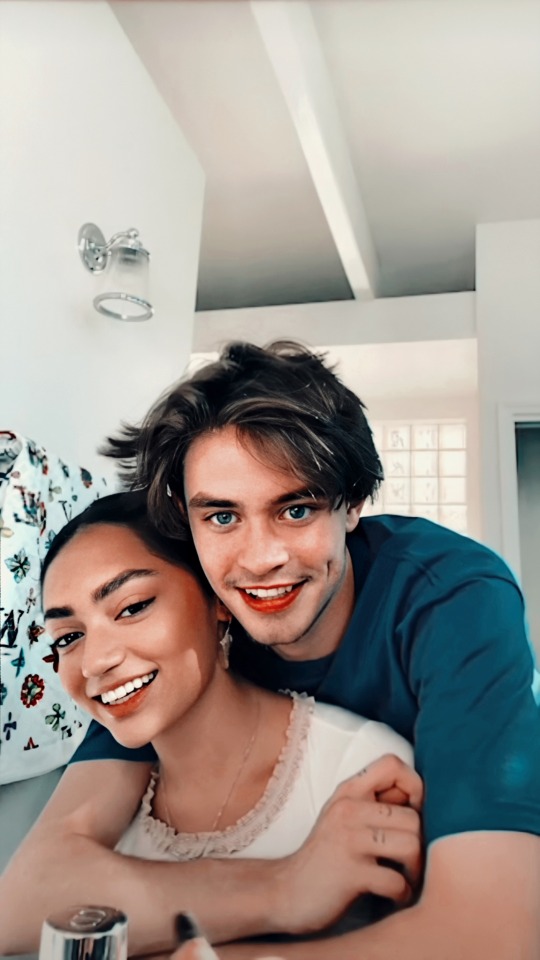
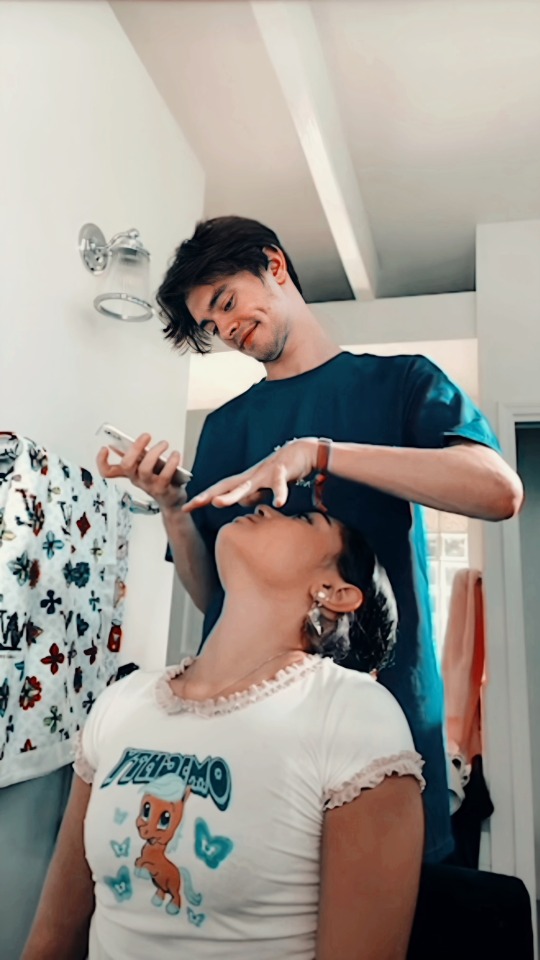
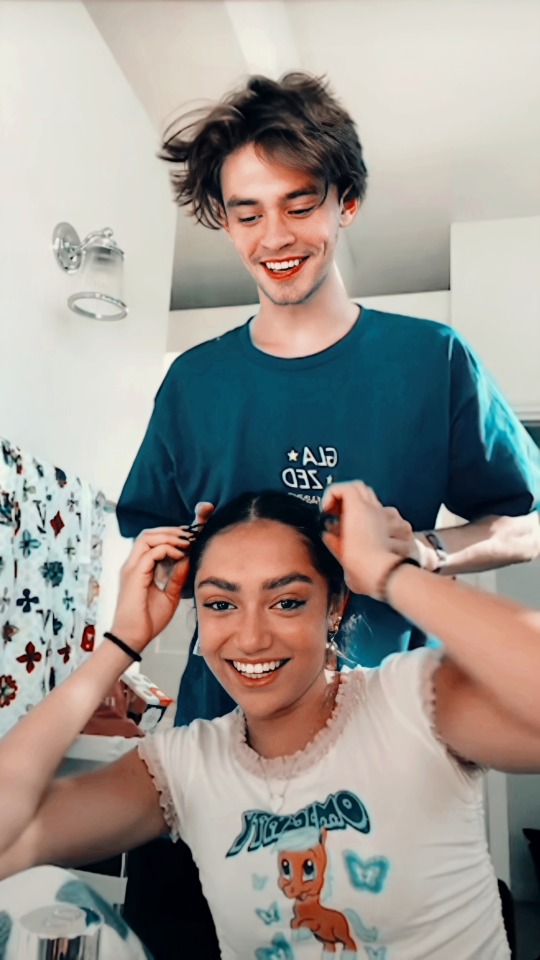
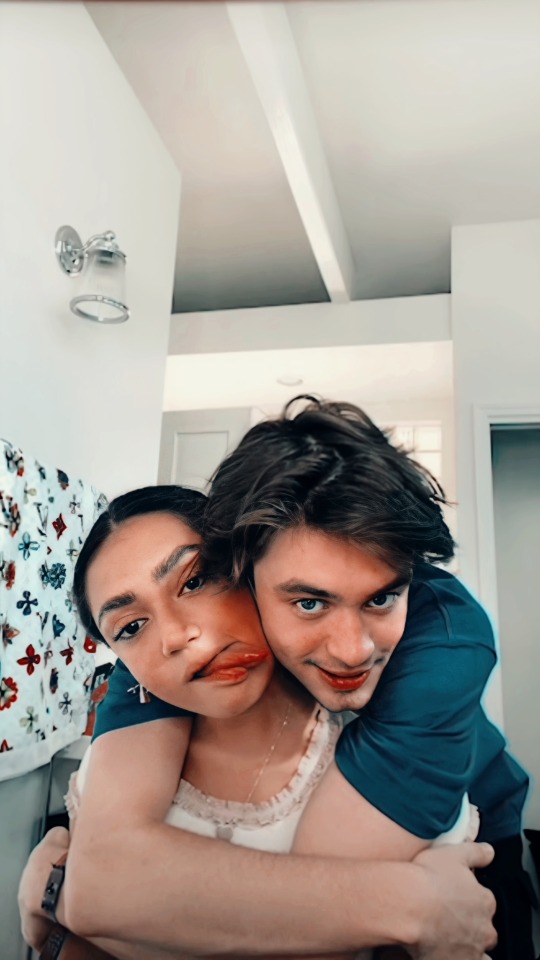
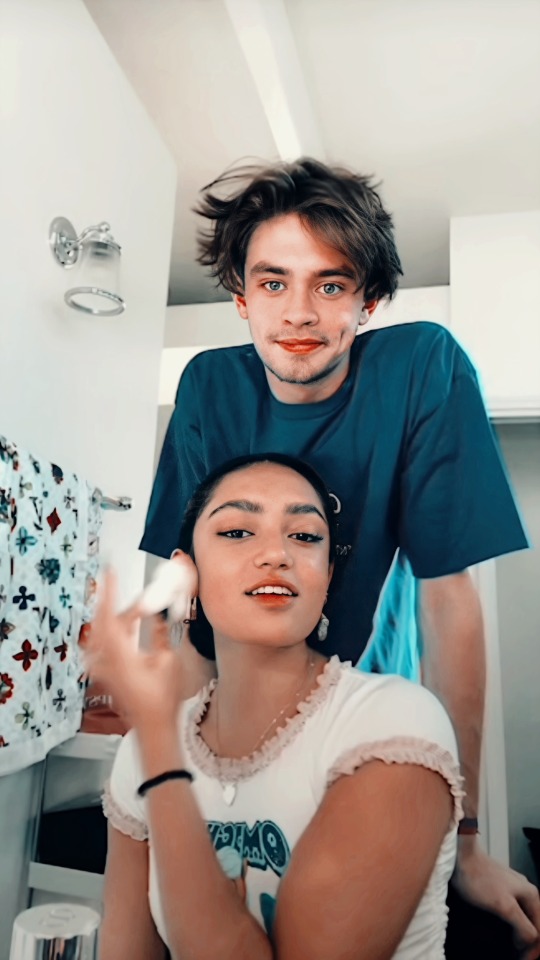
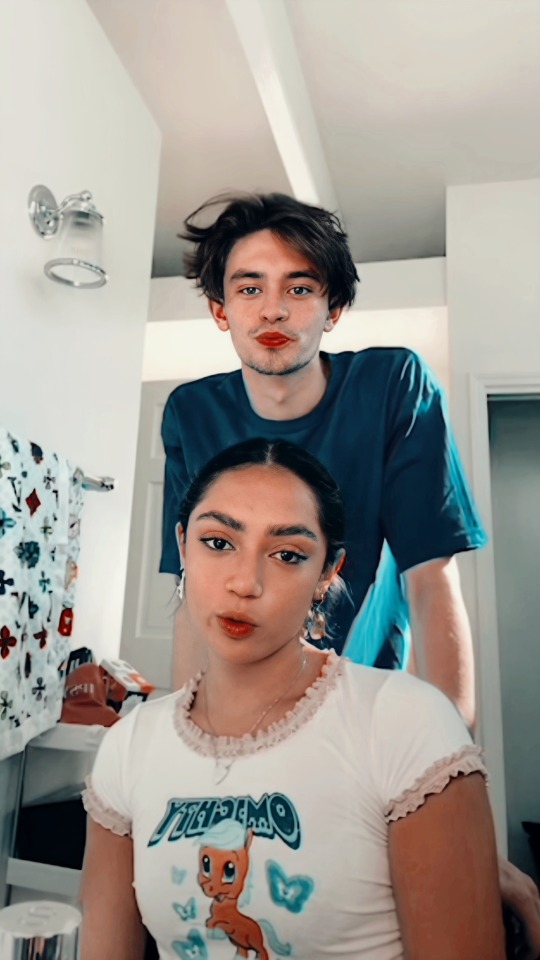
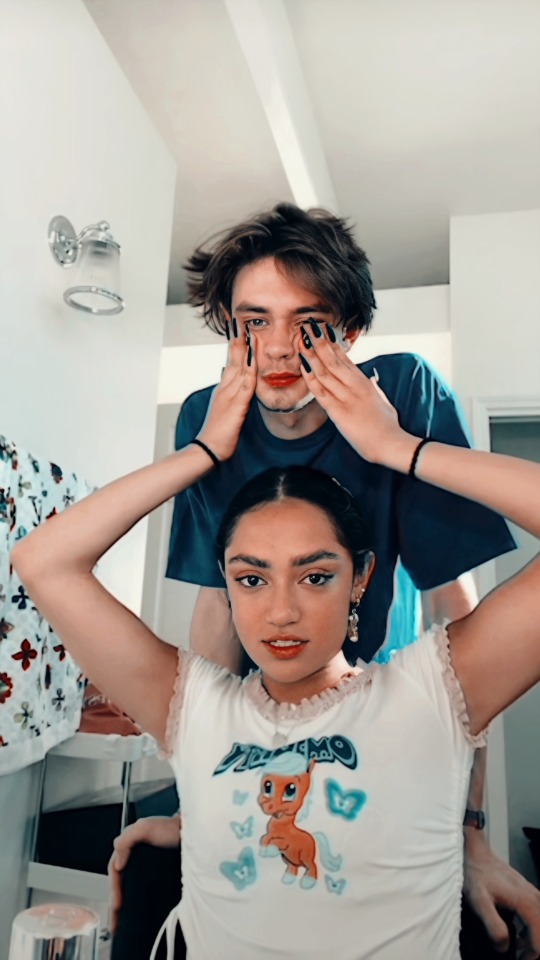
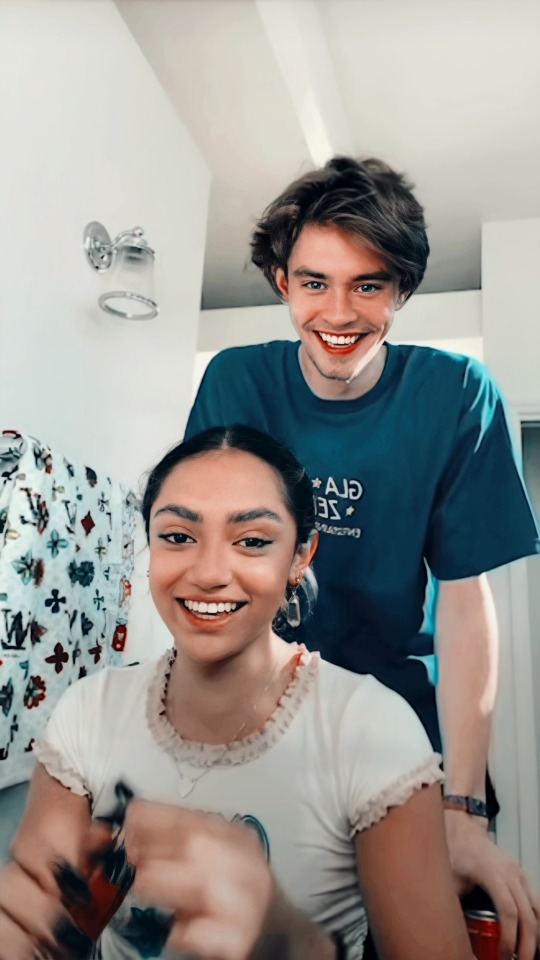

like or reblog
#avani#avani gregg#anthony#anthony reeves#anfony#avanthony#avani icons#avani gregg icons#anthony icons#anthony reeves icons#anfony icons#avanthony icons#avani locks#avani gregg locks#anthony locks#anthony reeves locks#avanthony locks#avani lockscreens#avani wallpapers#avani gregg lockscreens#avani gregg wallpapers#anthony lockscreens#anthony reeves lockscreens#anthony wallpapers#anthony reeves wallpapers#avanthony lockscreens#avanthony wallpapers
65 notes
·
View notes
Photo


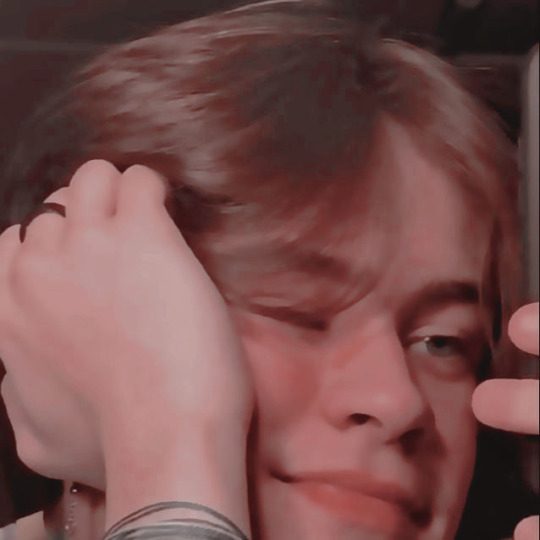


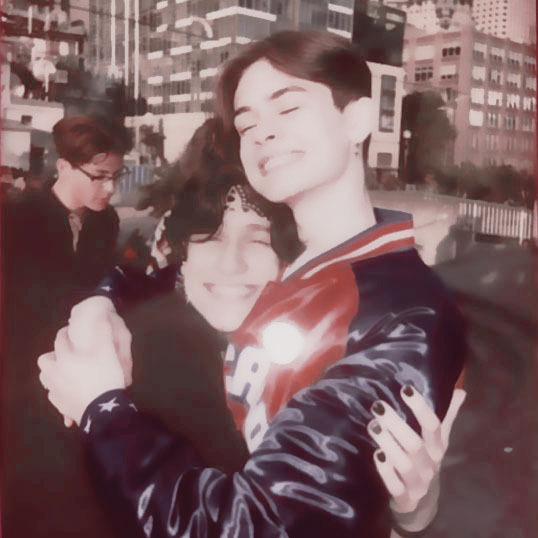



pls like or reblog if you save!!
#anfony#luvanthony#anthony reeves#jaden hossler#jadn#xlilhuddy#chase hudson#egirl#eboy#tik tok#icons
499 notes
·
View notes
Text
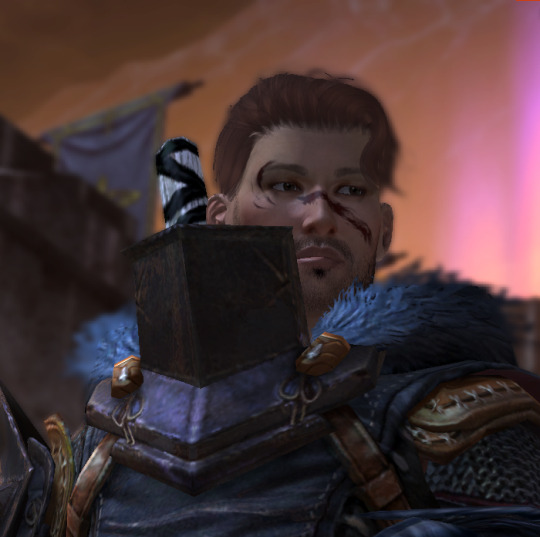
mod that plays careless whisper every time i see my hawke
#anfony...antony...baby boy#sorry anders i was looking at my boy#caoimhe plays dragon age#my ocs#antony hawke
2 notes
·
View notes
Text


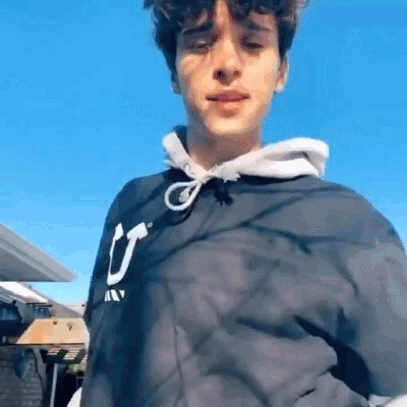
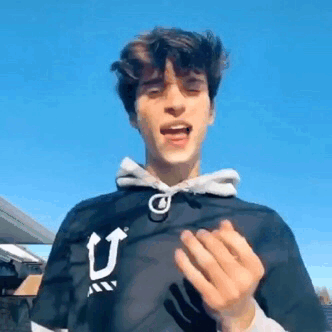
someone’s missing anfony🤪
39 notes
·
View notes
Text
louis’ accent and how he prounces “th” as “f” will never stop being cute
“fank you” “anfony” “take a deep breaf”
446 notes
·
View notes
Text
you are in the earth of me [masterlist]
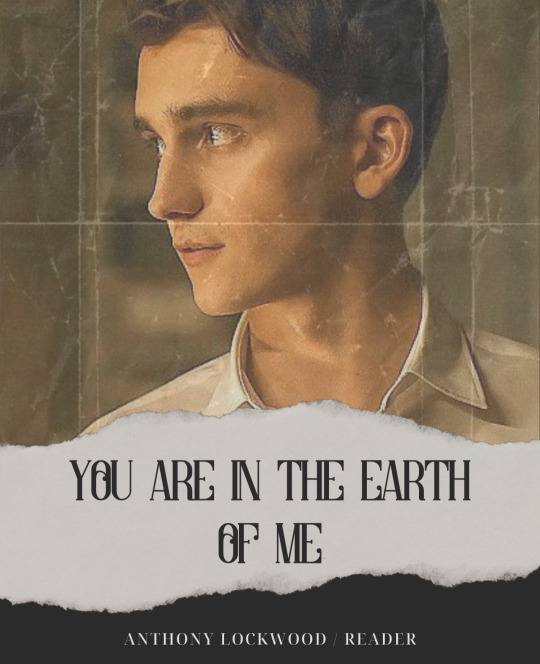

When Kipps asks you to help out on a case, you think nothing of it until you get into a mystery with stakes so high you should have maybe become an acrobat instead of psychic agent.
Working with the notorious Lockwood & Co. agency is the last on your list of unexpected problems, especially because growing familiar with every one of its agents opens the door to truths you've long buried—even the one to your past you've locked away behind high-security steel doors with the intention to never cross its threshold.

Content (Warnings): canon typical violence & horror, angst, loss of family member, grief and loss, slight ptsd, slow burn, rivals to lovers, platonic lockwood & co/Reader, childhood friends! Kipps & Reader, found family, mature language, aged up characters (everybody is in their early 20s; Kipps is mid-20s)

◘ 01: let the dead hollers hum
• words: 5.1k
• summary: “Ton—Anfonie ‘Ockwoo’.” You nod, and finally swallow your mouthful of food. “I’ve heard things about you.” Lockwood’s dark eyes slide over to Kipps for a second, glinting like a knife drawn out of its sheath. He gives you a nice, easy smile. “Only good things, I presume?”
You feel your face scrunch up at the memory of Kipps’s curses, threats and very imaginative ways of what he’d do with his rapier and a very specific part of Lockwood’s body. “Yeah, uhm … things.”
◘ 02: for whom the bell tolls
• words: 7.3k
• summary: Your eyes pop open. Lockwood is standing at the bottom of the stairs, leaning against the banister with his arms crossed, an amused look on his face. All tousled dark hair and brown eyes as sharp as glass, he is as tall as Kipps, perhaps taller, and lankier. But their demeanours are quite different. Where Kipps is calm and steady like stone, reliable like the earth that is always solid under your feet, Lockwood seems striking like a flash of bright lightning—quick-witted and assured in the path he carves as though the mere thought of something standing in his way is so far-off that he just barrels ahead with no regard of what he sets ablaze.
◘ 03: wring those embers
• words: 4.3k
• summary: A hand catches your wrist. Warm fingers brush against the slip of skin where your glove ends, sending an electrifying shock up your arm. You start.
Lockwood lets go and pulls back. “Like it or not, we are in this together,” he says quietly. His voice drops to a low tremble, gaining a quality that feels like a solid caress on your skin. Heat crawls up your neck. “And as with any proper team, there are no secrets, and no holding back valuable information. Deal?”
◘ 04: there's a kind of calling
• words: 4.6k
• summary: Responsibility. Lucrative agent. Resource. It seems everyone is happy to fit your whole existence into one word; put you inside a cardboard box, slap a postage stamp on your forehead as though you’re some ghastly parcel to be shipped off when taking up too much space; being too inconvenient. Looks like even Lockwood and Co. is no different from the other agencies, a sobering revelation that is surprisingly disappointing.

If you would like to join the taglist, just let me know! Also posted on Ao3. If you enjoy it, I'll give you tons of kisses for some coffee!
#lockwood show#lockwood books#lockwood & co#l&c#lockwood x reader#anthony lockwood#anthony lockwood x reader#lockwood x you#lockwood x y/n#lockwood netflix#lockwood and co reader#reader insert#lockwood reader insert#l&c reader insert#phill.l&c#best friends reader and kipps
161 notes
·
View notes
Link
Check out this listing I just added to my Poshmark closet: morphe avani gregg eyeshadow pallet.
0 notes
Text
Second Wife-Chapter 19 : Breakfast and Bairns
Second Wife Table of Contents
Second Wife on AO3
Previously - Chapter 18 : Not Gone
The Sassenach was dead, but not gone.
"It's a nuisance," she said, looking up to see me still watching. "Everything to do wi' bairns is a nuisance, almost. Still, ye'd never choose not to have them."
"No," I answered softly. "You wouldn't choose that" (Outlander 675).
The time periods on my version are closer to the book than the TV show—on the show, Jamie leaves, exiled with Dougal, and Claire is called to Geillis’s shop the same day. In the book, it’s closer to two weeks after Jamie leaves that Claire is arrested.
By now, Jamie wasn’t surprised at any post-coital personality fluctuations from Laoghaire. She woke up and had nothing to say to him, wouldn’t even look at him as she dressed. He stretched lazily, rolled over, and ignored her. He needed to live his life independently of Laoghaire’s moods. If his attitude for the day was determined by her, he’d be miserable all the time. And he intended to enjoy the relaxed way he felt after last night’s sexual relations; if he was going to be married, he should at least feel this way occasionally.
Jamie closed his eyes. Last night after sleeping with Laoghaire he had dreamed of Claire and Frank. Having never seen the man himself, the Frank of his imagination was a strange mix of Jack Randall and his brother Alex. With hair cropped short, as Claire described it, he imagined a lanky, loose man, rather than Black Jack Randall’s rigidity, with a face he hated to the depths of his being. The man who wore that face had torn him from his family and vindictively marked his body forever. Jamie couldn’t see his back, and his chest hid the scar from removing Randall’s brand on his ribcage, but there was no forgetting feeling so used and broken and violated. Randall had stolen his manhood for a time, but Claire had stayed with him as he worked to get himself back.
In his dream, Claire’s belly was ripe with their child. But instead of her mounting him in the moonlit darkness in Paris, pregnant with Faith, she was climbing atop Frank Randall, pregnant with Jamie’s son. Or was it Black Jack he saw? “Find me, Jamie,” she had said. And God, he could have reached out and killed her. His baby, her body—and she was giving herself to Frank?
Ah, he thought, with a sudden flush, covering his face with his hand. That’s why Laoghaire was angry. It hadn’t been but an hour or two after they had fallen asleep that he’d dreamed of Claire, and he’d woken up with an erection. He cringed as he remembered pulling Laoghaire atop him, her legs astride his pelvis. She was sleepy enough that she didn’t initially object, and her body felt so much like Claire pregnant, voluptuous breasts and curved belly. His hands and mouth were hungry for her. But as her mind cleared and she woke, she became angry, pulled herself off him, and turned her back to him. He’d apologized, of course he had. But how could he explain himself? “I’m sorry, lass, I was dreaming of my first wife traveling forward in time and having sex with her first husband while pregnant wi’ my bairn; and jealous, I took advantage of you?” There was no excuse.
Jamie was grateful for the distraction of packing and family, going downstairs for breakfast once he had dressed himself. He was greeted with fervent cries of “Nunka Jamie!!” from four enthusiastic little boys when he entered the dining room, a smile from Joanie and from Ian, and silence from Laoghaire.
“Paul and I thought we’d visited aplenty yesterday and we could get much done today at home,” Maggie said apologetically. “But the boys insisted that they wanted to see ‘Nunka Jamie’ again before ye left.”
“And how could one say no to such faces?” Jenny grinned, placing more scones close to Maggie’s two urchins, mouths stained red with berry juice.
“Nunka Jamie,” toothless Angus announced loudly. “Mama has a bairn growing in her tummy.”
“Wawr!” roared two-year-old Anthony, raising his hands and turning them into claws.
“Not a BEAR, silly,” said Angus, turning to his little brother. “A bairN. A baby.”
“Bee-bee,” repeated Anthony, his forehead wrinkled.
“I dinna fink Anfony understands,” said Angus, shaking his head sadly. Jamie patted the little one on the top of his curly-haired noggin.
“Really, Cousin Maggie? Number three? Congratulations,” said Marsali, bringing in a plate piled high with ham slices.
“Do you want a baby brother or a baby sister?” Jamie leaned forward to the boys’ level and asked them.
“Baby…wabbit!” Anthony announced solemnly.
Angus dissolved into giggles. “Silly Anfony! Mama can’t make a wabbit!”
Jamie glanced at Laoghaire, wondering if the interchange was amusing her, but she looked absent, remote. He looked away.
Ian was choking on a bannock across the table. “Maggie,” he said, “perhaps ye should be teaching yer sons a little more about bairns and where they come from.”
“Anthony is two,” she insisted, shaking her head. “Plenty of time for that later, ya ken?”
“So much good news,” sighed Jenny, her hand on Ian’s shoulder, looking with pleasure around the faces at her table. “Kitty to be married, and another bairn on the way. And Marsali, a grown-up lass of fourteen!” She smiled across at Jamie. “We surely wish ye lived closer, or that ye could stay longer.”
Jamie had just taken a bite of blueberry compote. “Aye, but ‘tis planting season. We canna stay away for long.”
“Well, maybe the girls can come visit their cousins for a time this summer,” Ian offered. Wee Janet and Marsali grinned wide-eyed at each other.
The time for farewells finally came, and the Balriggan Frasers mounted their horses and headed toward home.
Laoghaire stared at Jamie’s broad back on Gaoth. She had woken up to his lust in the darkness. In a way she felt gratified—she had stirred him enough that he wanted her again, so soon. But she was also angry, bitter, and confused.
Years ago, he had looked at her, hungry and single-minded. Once his hands had been drawn to her body like a moth to a candle; once his eager touch and desire drove her mad. After he rescued her in the hall, after the moments in the alcove, Laoghaire had envisioned her future—Jamie as her husband, living with her, sitting across from her at the table, sharing her bed, taking her body, fathering her children.
And that is what she had now, Laoghaire thought, tears beginning to well in her eyes. Why was it failing? Why wasn’t she happy?
When Jamie proposed marriage after Hogmanay, Laoghaire had thought finally Jamie would be freely devoted. All hers.
Claire was finally, truly gone.
☆☆☆☆☆
Ever since Claire had confronted her in the kitchen, Laoghaire had burned with resentment and anger.
As she replayed the situation in her mind, she became more and more convinced that what she had told Claire was true. Jamie belonged with her. Claire was a usurper, a cuckoo chick that had pushed her out of the nest. Laoghaire wanted her gone.
But after seeing Jamie and Claire together in the hall that night, Laoghaire tried to tell herself to stay away. It would only hurt and disturb her to see Jamie with the Sassenach. She should concentrate on her work.
“Oh, Laoghaire,” Mrs Fitz called out to her as Laoghaire was about to head home after a hard day’s labor. Though she stayed with Mrs. Fitz many nights, her da depended on her help with the younger children, and several nights a week he expected her to come home. Those were the nights he stayed out late at the tavern, drinking. Laoghaire’s ma had died three years ago, but he still grieved her, and getting soused was the one way he could forget.
Mrs. Fitz drew close to speak to Laoghaire quietly. “Remember to bring clean clouts with you from home. I’m past that time so I dinna keep any now, and ye dinna want to be caught unprepared.”
“Gran, what d’ye mean?” Laoghaire asked, confused.
‘Isna it about yer time, m’dear?” With no mother to look after her since she was 12 when her ma died in childbirth, Laoghaire’s grandmother had taken on the mothering role in her life.
Again? Laoghaire groaned inwardly. The curse of Eve, her da called it. Just another sign reminding the world that God despised women for their role in leading mankind astray, a monthly showing of blood that reminded all that death came to the world because of women.
“Ye note my courses, Gran?” Laoghaire asked, dumbfounded.
“Yer as regular as the moon, wee one,” said Mrs. Fitz. “I imagine it will start anytime.”
As she counted backward, Laoghaire was astounded that her gran was right. Well, she would make sure to have a stack of clean clouts ready.
Walking down the hallway to head out to the stable, Laoghaire was trying to decide what she should make for her family’s supper. She wasn’t expecting it when John Robert suddenly appeared in front of her, so she startled and nearly fell, but he gently grabbed her elbow and steadied her, as smooth in his movements as he had been with his words.
Laoghaire pushed past him. “I dinna want to talk to ye, John Robert.”
“What’s wrong, lass?” he asked, his eyes registering the chill in her body language.
Laoghaire had one word for him. “Married?” It was more a statement, a judgment than a question.
“It’s no what ye think, lass,” John Robert said. His hand was on the center of her back, right above her corset, stroking her gently, his fingers tracing the top edge of her shift. “I love ye. Can I please speak my case? Meet me at the tavern, t’night after the moonrise.”
He was so handsome, Laoghaire felt a pang in her stomach. She wished she could get it back—the way it felt to float down the street confident in her beauty, hopeful about her future, no longer bitter about the Sassenach stealing Jamie from her. She should say no, but her heart and body said “Just this once.”
And so it was, that after she fed her family, saw her father head off to the tavern to drink, and tucked her younger siblings into bed, Laoghaire found herself skulking in the shadows to the side of the tavern.
When John Robert appeared, she hushed him and pulled him into the darkness by the building with her.
“My da is in there,” she said. “I canna stay. What ye have to say to me, ye need to say here.”
“I need time to speak to ye, lass,” John Robert insisted. “He willna find out.”
She shouldn’t trust him, she knew she shouldn’t, but she pulled the hood of her cloak down over her face and followed him upstairs. When they were sitting in the parlor, John Robert touched her arm compassionately. “What have they been telling you?”
“The truth,” she said. “That ye have a wife, and bairns.”
“Yer the one I truly love.”
“It doesna matter. How ye feel doesna change the facts,” she said. “Yer married.”
“I am married. And I’m miserable, lass.” John Robert lamented, his hand on hers. She tried to feel nothing, but he looked so woeful. “My wife is pregnant, aye, but she doesna want me. I’m starving for love and attention. Being with you was the first comfort I’d had in months. Her family are weak constitutioned, and I’m afraid she’ll die in childbirth. What will happen to me, if she is gone? Will ye wait for me?”
“How long?” Laoghaire asked.
“Not long,” John said, his eyes and hands straying to the laces of her bodice, “But will you jest let me see ye, look at ye? Will ye grant me something to give me strength while I wait?”
She tried to resist, truly she did, but he said such nice things.
He had been right, though. She crept home in the darkness and was in her bed before her da came crashing in through the door, tripped across the doorstep in his boots, and soon was snoring drunkenly in his bed.
When Laoghaire arrived at the castle the next day, the kitchen was buzzing with the newest gossip. Dougal’s wife had been poisoned, and Geillis Duncan’s husband had died unexpectedly. Or was it the other way around? Whatever the facts of the matter, the result, Laoghaire was finally able to gather, was that Dougal had been sent home to mourn his wife, and Colum had angrily sent along Angus, Rupert, and Jamie.
“They say,” whispered Saffron, “That the reason Colum is so angry is that Geillis Duncan is with child. And they say it’s not Arthur Duncan’s bairn.”
“No,” agreed Fiona, glancing both directions to make sure none but Laoghaire heard, “They say it’s Dougal’s!”
“And,” Saffron added, “Colum was so mad about Jamie dueling with the MacDonalds that he made him leave the Sassenach here at Castle Leoch.”
This was new to Fiona, who turned to Saffron with an empathetic look on her face. “Oh, what a shame,” she said. “’Twill be hard for the young lovers to be apart.”
Laoghaire tried to hide her pleasure, but she took some satisfaction in knowing that at least Claire and Jamie weren’t together. Instead the Sassenach had to stay in the castle, where she continued to work in her surgery, binding up wounds and pounding and mixing potions for any of the castle inhabitants’ ailments or complaints.
But as Laoghaire thought about ailments and complaints, she also thought of the clean stack of clouts she had brought back from home that now sat on a shelf in her cupboard in Mrs. Fitz’s room. Several days went by, three, then four. And still, her courses did not come. “Regular as the moon,” Mrs. Fitz had said.
As the days went by, Laoghaire also began to see John Robert in a more realistic light. She would come around the corner in the castle and find him leaning up against a wall, speaking flirtatiously to one of the ladies’ maids. The next thing she knew, he would be putting his hands on one of the ladies of the castle as he helped her up on her freshly-shod horse. It become clearer with time that John Robert MacLeod’s word could not be trusted.
She truly didn’t want to believe it, but as the days went by, Laoghaire became more and more convinced.
John Robert was a rake, and she was pregnant with his baby.
On to Chapter 20 : The Waning O’ The Moon
Desperate times call for desperate measures.
#Jamie fraser#Laoghaire MacKenzie#CanonCompliant#Why did Jamie marry Laoghaire?#Why did their marriage fall apart?#Outlander fanfic#BetweenSceneswriter
18 notes
·
View notes
Note
hey anfony how's your summer going
idk amon hob’s ur’z?
1 note
·
View note
Text
Luvanthony
Você foi marcado no TikTok Isso não é mentira, é dinheiro de verdade! https://vm.tiktok.com/7JWqL2/ Clique aqui para ganhar #tiktok #dance #fun #anfony #swayla #swayhouse Source by jsmiles5599 Você foi marcado no TikTok Isso não é mentira, é dinheiro de verdade! https://vm.tiktok.com/7JWqL2/ Clique aqui para ganhar
Source: https://opengeekhouse.com.br/2020/07/11/luvanthony/
0 notes
Text
0 notes
Video
Nike Air Max Penny 1"Metallic Silver" Pure white electroplated silver NBA star Anfony Hardaway Penny#greekfreak #kicksonfire #kicksoncourt #fearthedeer #sneakernews #kobead #bucks #giannis #milwaukee #nike #mustcop #kickstagram #snkrs #blackmamba #nbakicks #playoffs #nbhoops #theklaw #kawhi #toronto #raptors #kicksonfire #kicksoncourt #leonard #newbalance #shoes #Nike https://www.instagram.com/p/ByrrRvqlvHs/?igshid=kct0rrhy8gz7
#greekfreak#kicksonfire#kicksoncourt#fearthedeer#sneakernews#kobead#bucks#giannis#milwaukee#nike#mustcop#kickstagram#snkrs#blackmamba#nbakicks#playoffs#nbhoops#theklaw#kawhi#toronto#raptors#leonard#newbalance#shoes
0 notes
